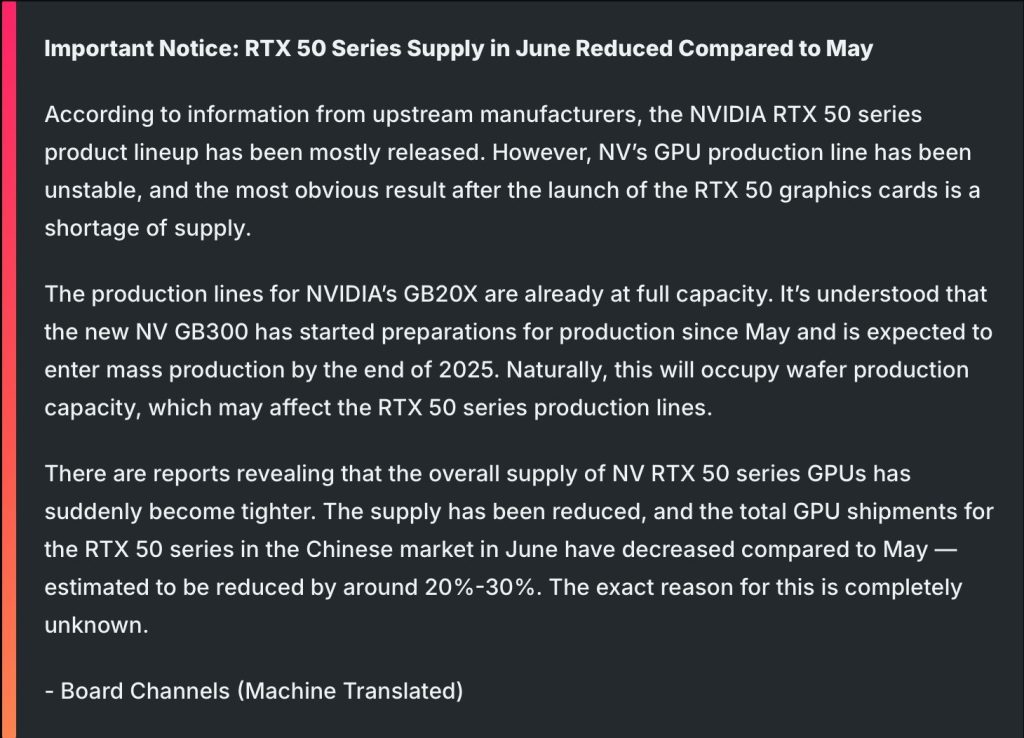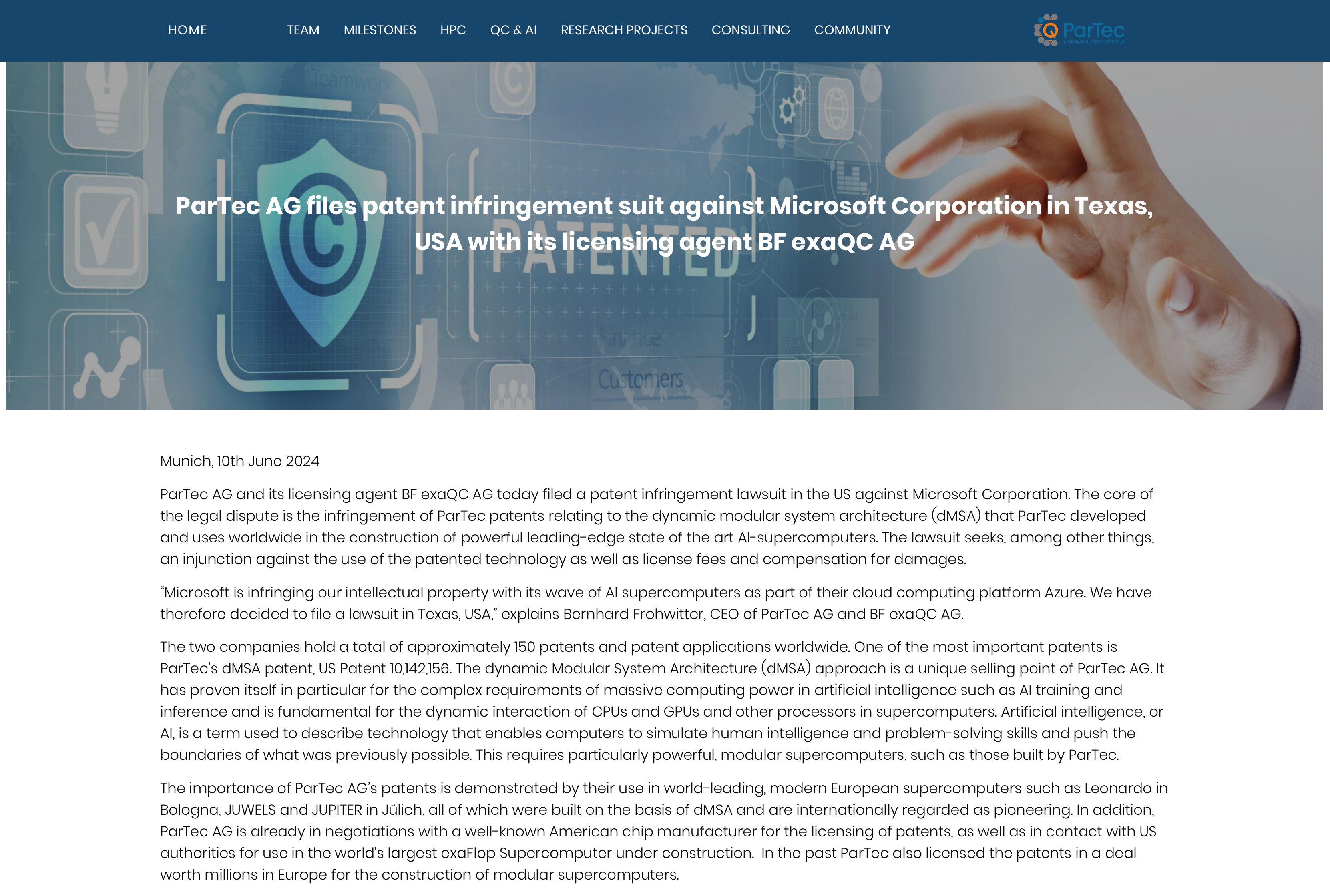- Nvidia is being sued by German tech firm ParTec AG for the allegedly unlawful use of proprietary technologies like dMSA in Nvidia’s DGX AI-based supercomputers.
- ParTec demands financial compensation while also asking for the sale of DGX products to be banned in the 18 European countries where the firm holds patent protection.
- Nvidia has stopped supplying GPUs to ParTec ever since the former filed similar lawsuits against Microsoft, causing spectators to cite antitrust laws.
Let’s be clear: Nvidia can’t seem to catch a break in 2025.
Just as the catastrophic RTX 50 Series launch was already making headlines for all the wrong reasons—another storm is brewing.
This time, it’s not just disgruntled gamers; it’s a German tech firm taking the semiconductor giant to court in a move that could shake Nvidia’s dominance in Europe’s AI infrastructure.
A Perfect Storm Of Problems: The RTX 50 Series Debacle
Before we dive into the legal battle, it’s worth recapping just how badly Nvidia has fumbled its consumer gaming lineup.
The RTX 50 Series launch has been nothing short of a disaster. From Day 1, drivers have been unstable, causing frequent blue screens of death that have left even loyal customers frustrated.
Scalpers, taking full advantage of a severe demand-supply mismatch, have driven prices to astronomical heights, making it nearly impossible for average consumers to buy these GPUs at reasonable rates.
Then came the hardware flaws. Reports of missing ROPs emerged, with Nvidia downplaying the performance hit as “just 4%”—a claim that did little to reassure buyers paying premium prices.
Even more alarming were the findings from Igor’s Lab, which revealed dangerous power delivery overheating hotspots, threatening the long-term stability and performance of these high-end cards.
To make matters worse, Trump’s tariffs forced Nvidia to raise prices by 10-15% across the board, further alienating budget-conscious buyers.

And now, verified leaks from Chinese board channels suggest Nvidia is slashing RTX 50 Series production by 20-30% to divert resources toward its lucrative AI GPU division. It’s clear where Nvidia’s priorities lie, and it’s not with gamers.
The German Lawsuit: ParTec AG Takes On Nvidia
Just when it seemed things couldn’t get worse, Nvidia is facing a formidable legal challenge in Europe. For starters, German tech firm ParTec AG has filed a third patent infringement lawsuit against Nvidia at the Unified Patent Court in Munich.
Moving on, the lawsuit alleges that Nvidia’s manufacturing and sale of its DGX line of supercomputers constitute patent infringement.
Keeping in mind that the DGX supercomputers are a critical part of AI infrastructure powering a variety of industrial sectors from healthcare to automotive and finance, the stakes couldn’t be higher.
Adding on, ParTec’s lawsuit revolves around the company’s dynamic Modular System Architecture (dMSA) patent.
To elaborate, dMSA allows various types of microprocessors, such as CPUs and GPUs, to dynamically coordinate and share workloads even during active calculations in an efficient manner thanks to Unified Memory.
Needless to say, for AI supercomputers handling massive data and compute tasks in real time, this architecture is nothing short of revolutionary.
How Nvidia & ParTec’s Relationship Soured
The history between these two companies adds layers of intrigue to this dispute.
To begin with, ParTec had initially explored collaboration with Nvidia back in 2019, sharing detailed copies of its patented ParaStation software and dMSA concepts, but Nvidia ended up backing down from a full-fledged joint venture.
While Nvidia declined to jointly develop GPUs for supercomputers, the two companies continued working together on various projects where Nvidia supplied GPUs.
However, tensions escalated when ParTec initiated patent lawsuits—including a high-profile case against Microsoft in Texas involving the same core technologies.

In response, Nvidia abruptly ceased discussions about supplying GPUs for upcoming European supercomputer projects with ParTec.
This move has been interpreted as a strategic retaliation, highlighting the cutthroat nature of the AI hardware space and how even tech giants like Nvidia can be prone to antitrust lawsuits.
What ParTec Wants And Why It Matters
Simply put, the lawsuit demands that Nvidia stops selling its essential DGX products across 18 European countries where ParTec holds patent protection.
Additionally, ParTec is seeking detailed sales disclosure to report and reclaim significant damages, underscoring the financial stakes of this dispute.
Of course, even beyond the courtroom, the implications are profound.
Firstly, the dMSA patent represents a critical innovation in how supercomputers allocate processing tasks across heterogeneous architectures—a key factor in AI model training efficiency and scalability.
If ParTec succeeds, Nvidia could be compelled to alter how it designs and sells its AI systems in Europe and/or negotiate licensing deals with firms like ParTec, which would be a huge win for the European AI industry, collectively speaking.
The Bigger Picture: Europe’s AI Independence At Stake
This legal clash underscores a deeper, more systemic conflict within the global AI industry: Europe’s growing and uncomfortable reliance on American tech titans such as Nvidia and Microsoft for its most critical computational infrastructure.
ParTec’s CEO, Bernhard Frohwitter, has repeatedly warned that this overwhelming dependence threatens to undermine Europe’s strategic autonomy and its future as an innovative, competitive force in advanced AI technology.
By protecting its intellectual property, ParTec isn’t just fighting for itself; it’s fighting for Europe’s place in the global AI race.
Thank you! Please share your positive feedback. 🔋
How could we improve this post? Please Help us. 😔
[Wiki Editor]
Ali Rashid Khan is an avid gamer, hardware enthusiast, photographer, and devoted litterateur with a period of experience spanning more than 14 years. Sporting a specialization with regards to the latest tech in flagship phones, gaming laptops, and top-of-the-line PCs, Ali is known for consistently presenting the most detailed objective perspective on all types of gaming products, ranging from the Best Motherboards, CPU Coolers, RAM kits, GPUs, and PSUs amongst numerous other peripherals. When he’s not busy writing, you’ll find Ali meddling with mechanical keyboards, indulging in vehicular racing, or professionally competing worldwide with fellow mind-sport athletes in Scrabble. Currently speaking, Ali’s about to complete his Bachelor’s in Business Administration from Bahria University Karachi Campus.
Get In Touch: alirashid@tech4gamers.com




